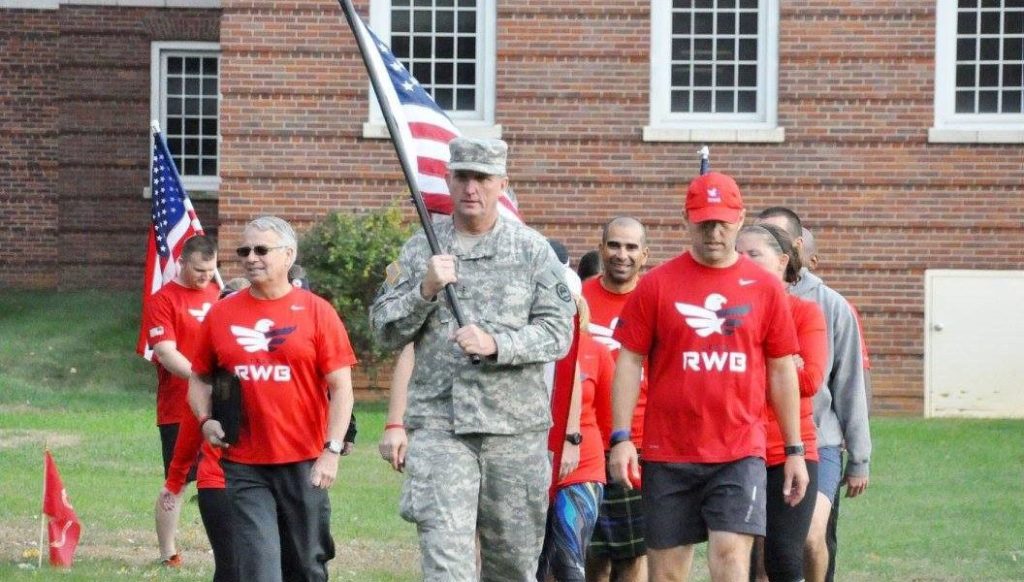Louisiana National Guardsman helps protect the U.S. from cyberthreats
Many former service members find the skills they learned in the military are applicable to their subsequent civilian careers. National Guardsman Dan Fain is both using those skills and applying them in real time.
As a chief warrant officer two in the Louisiana Army National Guard, Fain serves as a cyberofficer at the Joint Forces Headquarters, protecting both the Army network and state networks from cyberattacks. And as a security and identity architect for the Department of Defense (DoD) at Microsoft, Fain works with the DoD on improving its security and identity posture.
“It helps that my job in the Guard utilizes the same systems and capabilities that we at Microsoft try to help the DoD utilize,” Fain says. “I can speak the language, and being someone who still serves or has served brings instant credibility when you’re talking to the DoD folks, so it immediately eases the conversation.”
Joining the military was something Fain was passionate about. “I have a strong belief in my faith, and a strong belief that we are a great nation,” he says. “For some people, that’s wearing a uniform. For some, it’s providing support for those wearing a uniform. For some, it’s keeping things running at home while we’re gone. And that whole thing takes a team; it takes a team to do this, and no one thing is more important than the other. We all have to serve in certain ways to keep this mission going.”
Though Fain had been out of the military for eight years, when 9/11 occurred he decided to re-enlist. He says one of the most beneficial parts of being in the military is the camaraderie you form with your fellow service members.
“Knowing that the people to your left and to your right are just as dedicated to doing what we do as you are is a special experience,” Fain says. “It’s a challenge, a constant challenge, mentally and physically. But I can’t imagine anything greater than being tasked with protecting your country, your family and your community. It’s a real sense of pride for me.”
Fain recently finished a stint of active duty with the Army. He spent six months in Fort Gordon, Georgia, undergoing intensive cybertraining. He says the time apart from his wife, children and granddaughter is tough, but having a supportive employer makes all the difference.

“We’re blessed to have Microsoft, who supports us and takes care of us, and makes sure that it doesn’t become a financial burden when I’m gone,” Fain says. “Because basically, you end up setting up two households; you have your household back in Louisiana, and then I had to establish some place to live in Georgia for the six months I was there.”
Microsoft not only protects the jobs of reservists and guardsmen, but pays employees the difference between their military base pay and their Microsoft salary while on duty. Fain says that’s just one example of how Microsoft supports its former service member employees. In fact, Fain is the chair of the Microsoft veterans employee network group. He and other members reach out to newly hired veterans to help them find their fit at Microsoft and keep their career on track.
“We try to really build that camaraderie that we know from the military within Microsoft, so we have people that talk the same language or have walked in the same footsteps,” Fain says. “People can put their arm around a veteran who may be struggling to make the transition, or may be having an issue, and say, ‘Let us help you a little bit.’”
With a military career spanning 40 years (more than 17 of which were in active status), and nearly 10 years at Microsoft, Fain says his current roles not only complement each other, they are right in his career sweet spot.
“To me, one of the great things about working where I do, and in the area that I do with the DoD, is at times, we have the ability to go down range and actually work with the soldiers who are currently deployed,” he says. “That is so unbelievably rewarding, to go right where the rubber meets the road with these guys. It speaks to our company because I know it’s not an easy thing to do from a company standpoint, but we’re committed to helping our DoD any way we can.”
